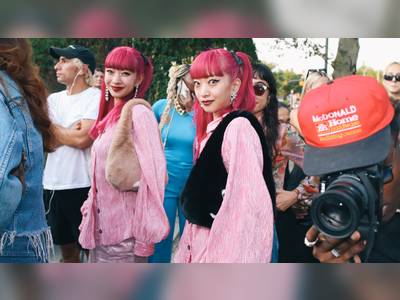And along with the event comes the en vogue discussion of the models' sizes.
Women who are a size zero — and double zero — are still a common sight on the runway. But some fashion spreads of late have prominently featured plus-size models.
"One of the things that's happened is that as the general population has gotten bigger and bigger, the models were getting smaller and smaller and smaller," Robin Givhan, fashion editor for The Washington Post, tells NPR's Renee Montagne.
Re-Evaluating
So, Givhan said, the fashion industry itself started looking into the issue. At a recent Council of Fashion Designers of America meeting, panelists discussed the sample size — the size that designers create for a runway show.
The sample size is so tiny that only extraordinarily thin women can fit in it. And when magazines have to photograph those clothes four or five months before they hit stores, the only way to photograph them is to use the samples. As a result, the models have to be thin enough to fit.
"Editors constantly say, 'Oh yeah, I would definitely use a larger model, except they don't fit the clothes that we're shooting,' " Givhan said
Is It Really 'Plus Size'?
One criticism of plus-size models: They're about a size 12. While that isn't tiny, it's smaller than the average American size, which is a size 14.

Phil Oh’s Best Street Style Photos From the New York Fashion Week Spring 2023 Shows
This season New York Fashion Week has brought in a worldwide crowd of stars thanks to a packed season that even includes shows...












